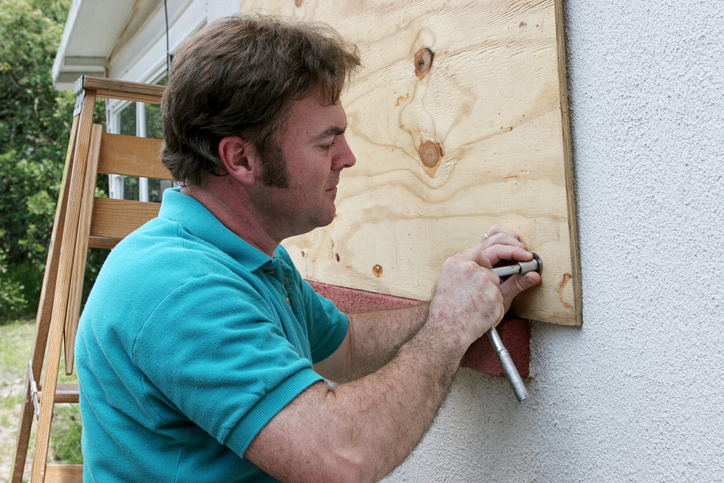What You Can Do to Prepare for Hurricane Season
It’s nearly hurricane season, which runs from June through November in the southern and eastern United States. But some months of the season pose bigger threats than others, and near Louisiana’s coastal region, hurricanes seem to be particularly active during August and September.
Hurricane Katrina was the most devastating natural disaster in the history of the U.S., and it forever altered how people from Louisiana think about hurricanes. But southern Louisiana, and particularly New Orleans, is full of fresh transplants who arrived after Katrina. These people may not have lived through a hurricane or understand what they need to do prepare. Even if you’re a long-time coastal resident, a reminder never hurts!
First off, you can track an approaching storm via Nola.com’s storm tracker. You can also check your parish website for regular updates. Jefferson Parish warns that residents are at particular risk if they live outside of the protection of a levee, in a mobile home, on the coast, or in a low-lying area. These residents in particular should have an evacuation plan in place ahead of time.
Below are some helpful reminders and tips for hurricane season preparation for people living in Louisiana and elsewhere.
1. Inventory your home in case you need to file an insurance claim.
Having photos of your home’s interior, exterior, and your personal possessions may speed up the processing of any insurance claim you need to file.
2. Make a storm kit.
Your kit should include:
- Bottled water
- Canned and dry food to last your household three days
- Flashlights
- Battery-operated radio
- Extra batteries
- Pet food
- Diapers
- Manual can opener
- First aid supplies
- Week’s worth of any necessary prescription drugs
3. Keep your important papers in a waterproof pouch.
Keep documents in a waterproof pouch and keep this pouch nearby during a storm. These documents should include:
- House and car titles
- Home inventory list (or photo memory card)
- Extra copies of health and homeowners insurance cards
- Contact information for key friends and family members
4. Keep emergency home-repair supplies on hand.
After a bad hurricane or storm, it may take days for a contractor to return your call, and it could be weeks before they are able to repair any damage to your home. Before hurricane season, buy heavy plastic sheeting, plywood, and nails to have on-hand for quick, temporary home repairs.
5. Fill everything up.
Fill up your bathtub and your car, and charge your phone if a storm is approaching. A solar-powered or backup phone charger is a great pre-storm purchase.
6. Keep your pets safe, and get them ready to evacuate.
Make sure your pets have microchips and collars in case they get separated from you. Purchase a portable pet kennel before the storm. Never leave your pets outside during a hurricane, flash flood, tornado, or lightning storm.
7. Secure loose objects in your yard.
If you have a boat or trailer, anchor it to the ground. Replace gravel landscaping with soft materials, such as bark. Cut weak branches and trees that could break and damage your home or car. Bring outdoor furniture inside.
8. Install storm shutters on your windows, and cover glass doors with plywood.
Before hurricane season, replace old garage doors and tracts with impact-resistant doors that are approved for high-winds.
9. Seal any exterior openings.
To prevent water damage, use urethane-based caulk to seal exterior vents, electrical outlets, and openings for cables or pipes.
10. Obey evacuation orders early.
Plan your evacuation route and transportation ahead of time. If you can’t evacuate, check with the Parish Office of Homeland Security and Emergency Preparedness for shelter options.
11. Make sure your property insurance policies are up-to-date.
Make sure your homeowners and flood insurance policies are current. If you have other valuable property that may be damaged in a storm, such as a vehicle, motorcycle, or boat, make sure those policies are comprehensive enough to provide the protection you need.
Worried you may not have all the property insurance you need? Louisiana Farm Bureau Insurance agents have policies to protect all of your important property. Contact a local agent today.

